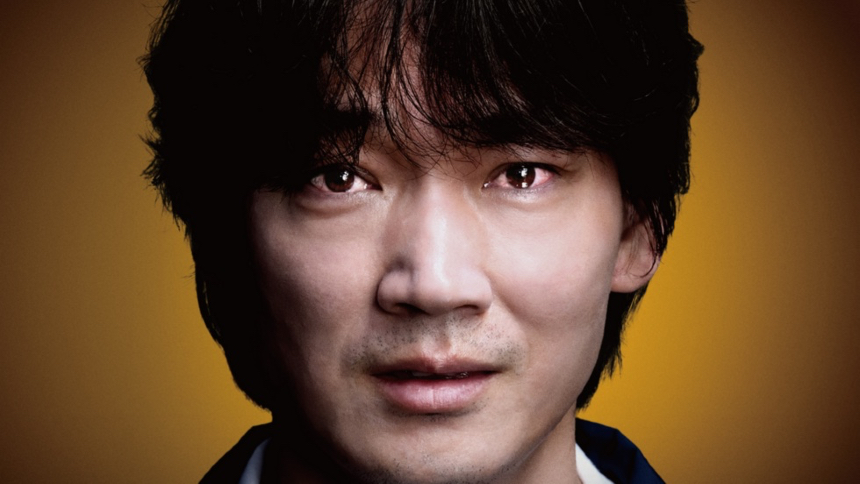Tribeca 2025 Review: SHAM, True Crime Courtroom Drama Filled with Missed Opportunities
Takashi Miike's film stars Gô Ayano.

Seiichi Yabushita (Gô Ayano) is an elementary school teacher.
One evening, he pays a home visit to the mother of one of his young students, Ritsuko Himuro (Kô Shibasaki), and finds out that the woman and her son have American roots. The teacher then proceeds to torment the boy both in and out of the classroom, spewing racial slurs and resorting to violence.
When the boy is driven to a suicide attempt, and the school still refuses to take action, his parents go to the press and eventually initiate a court action. When Yabushita is asked to make his plea, however, he stands up and says that everything we’ve just seen and heard was fabricated by the boy’s family. For the rest of the film, we are shifting to his recounting of the events that transpired.
Sham is a new feature by Takashi Miike, a director who needs no additional introduction, an uncompromising auteur who gave us Ichi the Killer and Audition, as well as that memorable cameo in Eli Roth’s Hostel. The more you are acquainted with Miike’s body of work, with his previous feature installment being titled Lumberjack the Monster, the more surprising you’ll probably find his interest in the material Sham has to offer. The story of teacher Yabushita is, in fact, true, and the film’s screenplay is adapted from the book by journalist Masumi Fukuda, who investigated those events.
Thus, the answer to the potential mystery is right there, easily found in the movie’s synopsis or through some brief googling. The teacher was falsely accused, so it is not a terribly big leap to suggest that Miike’s film would attempt to explore different perspectives in this true crime case and the possible reasoning and drive behind the fabricated accusation.
That shift at the beginning of the movie seems promising in that regard, hinting that we might get a sort of Rashomon narrative about the impossibility of ever truly knowing the truth in its fullest. But then, nothing of the sort happens: we just stay with Yabushita’s perspective for the rest of the film, which focuses on his emotional turmoil, the unfairness of the system, and the media frenzy that immediately turns him into a monster.
But for all of this focus (and more than two hours of runtime), Sham never seems to dig deep into anything, other than Yabushita’s personality, which comes off as sympathetic thanks to Gô Ayano’s consistent efforts. The media’s role in the teacher’s nightmare is represented by the figure of a sleezy and rather one-dimensional journalist who only cares about sensations and doesn’t rely on proof of any kind.
The flaws of the school system are embodied by Yabushita’s bosses, who also only care about saving face. The biggest missed opportunity, though, is not exploring the boy's mother further.
At the very start of the film, Ritsuko is presented as a concerned mother, a woman on the verge of a nervous breakdown, while Yabushita comes off as absolutely unhinged. The roles are then reversed, seemingly introducing an interesting, albeit not entirely original idea that while a person can be a hero or a victim in their story, they can also become a villain in someone else’s.
The narrative loses its complexity, though, as Ritsuko spends the rest of the screentime looking like a one-note sociopath despite the best efforts of the wonderful Kô Shibasaki, the alumni of Battle Royale and Miike’s One Missed Call. The brief flashbacks to Ritsuko’s childhood suggest some sort of a curious identity crisis, but that’s a story the film doesn’t seem to be interested in telling.
Instead, Sham leans into being a straightforward court drama with mostly static camera, which stays delicate even when it moves (another first one for Miike). Of course, Miike, one of the greatest minstrels of the idea of violence as an inevitable part of human behavior, shouldn’t be confined to the bounds of one theme or a certain style.
But it does seem like the potential of this particular story isn’t fully explored here, or at all, really. As it is, it’s not even entirely clear what the film is aiming for in terms of its meaning, as it seems to lean into condemning society’s willingness to unreservedly believe the presumed victims, which, in reality, just isn’t true in most cases.
The film enjoys its world premiere at Tribeca Festival 2025.
Sham
Director(s)
- Takashi Miike
Writer(s)
- Masumi Fukuda
- Hayashi Mori
Cast
- Kô Shibasaki
- Gô Ayano







